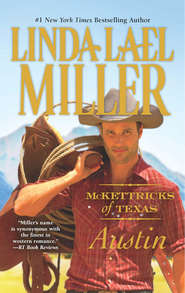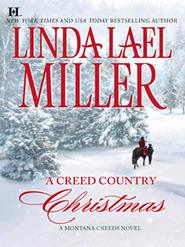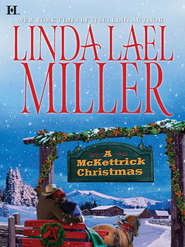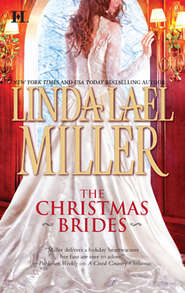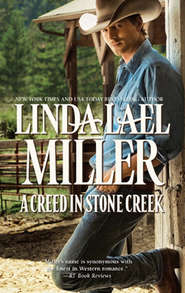По всем вопросам обращайтесь на: info@litportal.ru
(©) 2003-2024.
✖
There and Now
Автор
Год написания книги
2018
Настройки чтения
Размер шрифта
Высота строк
Поля
“Thank you,” Elisabeth said shakily. “Would you like some coffee? I think there might be a jar of instant in one of the cupboards….”
“We wouldn’t think of intruding,” said Miss Cecily.
Elisabeth led the way toward the rear stairway, hoping her gait seemed steady to the elderly women behind her. “You wouldn’t be intruding,” she insisted. “It’s a delight to see you, and it was so thoughtful of you to bring the casserole.”
From the size of the dish, Elisabeth figured she’d be able to live on the offering for a week. The prospective monotony of eating the same thing over and over didn’t trouble her; her appetite was small these days, and what she ate didn’t matter.
In the kitchen, Elisabeth found a jar of coffee, probably left behind by Rue, who liked to hole up in the house every once in a while when she was working on a big story. While water was heating in a copper kettle on the stove, Elisabeth sat at the old oak table in the breakfast nook, talking with the Buzbee sisters.
She neatly skirted the subject of her divorce, and the sisters were too well-mannered to pursue it. The conversation centered on the sisters’ delight at seeing the old house occupied again. Through all of it, the child’s voice and the music drifted in Elisabeth’s mind, like wisps of a half-forgotten dream. Twinkle, twinkle…
Trista Fortner’s small, slender fingers paused on the piano keys. Somewhere upstairs, a door rattled hard on its hinges. “Who’s there?” a feminine voice called over the tremendous racket.
Trista got up from the piano bench, smoothed her freshly ironed poplin pinafore and scrambled up the front stairs and along the hallway.
The door of her bedroom was literally clattering in its frame, the knob twisting wildly, and Trista’s brown eyes went wide. She was too scared to scream and too curious to run away, so she just stood there, staring.
The doorknob ceased its frantic gyrations, and the woman spoke again, “Please. Who’s there?”
“Trista,” the child said softly. She found the courage to touch the knob, to twist her wrist. Soon, she was peering around the edge.
There was nothing at all to see, except for her bed, her doll-house, the doorway that led to her own private staircase leading into the kitchen and the big, wooden wardrobe that held her clothes.
At once disappointed and relieved, the eight-year-old closed the door again and trooped staunchly back downstairs to the piano.
She sighed as she settled down at the keyboard again. If she mentioned what she’d heard and seen to Papa, would he believe her? The answer was definitely no, since he was a man of science. He would set her down in his study and say, “Now, Trista, we’ve discussed this before. I know you’d like to convince yourself that your mother could come back to us, but there are no such things as ghosts. I don’t want to hear any more of this foolishness from you. Is that clear?”
She began to play again, dutifully. Forlornly.
A few minutes later, Trista glanced at the clock on the parlor mantel. Still half an hour left to practice, then she could go outside and play with Vera. She’d tell her best friend there was a ghost in her house, she supposed, but only after making her swear to keep quiet about it.
On the other hand, maybe it would be better if she didn’t say anything at all to anybody. Even Vera would think Trista was hearing things just because she wanted her mama to come back.
“Twinkle, twinkle,” she muttered, as her fingers moved awkwardly over the keys.
“My, yes,” Roberta Buzbee went on, dusting nonexistent crumbs from the bosom of her colorful jersey print dress. “Mama was just a little girl when this house burned.”
“She was nine,” Miss Cecily put in solemnly. She shuddered. “It was a dreadful blaze. The doctor and his poor daughter perished in it, you know. And, of course, that part of the house was never rebuilt.”
Elisabeth swallowed painfully, thinking of the perfectly ordinary music she’d heard—and the voice. “So there was a child,” she mused.
“Certainly,” Roberta volunteered. “Her name was Trista Anne Fortner, and she was Mama’s very best friend. They were close in age, you know, Mama being a few months older.” She paused to make a tsk-tsk sound. “It was positively tragic—Dr. Fortner expired trying to save his little girl. It was said the companion set the fire—she was tried for murder and hanged, wasn’t she, Sister?”
Cecily nodded solemnly.
A chill moved through Elisabeth, despite the sunny warmth of that April afternoon, and she took a steadying sip from her coffee cup. Get a grip, Elisabeth, she thought, giving herself an inward shake. Whatever you heard, it wasn’t a dead child singing and playing the piano. Aunt Verity’s stories about this house were exactly that—stories.
“You look pale, my dear,” Cecily piped up.
The last thing Elisabeth needed was another person to worry about her. Her friends in Seattle were doing enough of that. “I’ll be teaching at the Pine River school this fall,” she announced, mainly to change the subject.
“Roberta taught at the old Cold Creek schoolhouse,” Cecily said proudly, pleased to find some common ground, “and I was the librarian in town. That was before we went traveling, of course.”
Before Elisabeth could make a response, someone slammed a pair of fists down hard on the keys of a piano.
This time, there was no possibility that the sound was imaginary. It reverberated through the house, and both the Buzbee sisters flinched.
Very slowly, Elisabeth set her coffee cup on the counter. “Excuse me,” she said when she was able to break the spell. The spinet in the parlor was still draped, and there was no sign of anyone.
“It’s the ghost,” said Cecily, who had followed Elisabeth from the kitchen, along with her sister. “After all this time, she’s still here. Well, I shouldn’t wonder.”
Elisabeth thought again of the stories Aunt Verity had told her and Rue, beside the fire on rainy nights. They’d been strange tales of appearances and disappearances and odd sounds, and Rue and Elisabeth had never passed them on because they were afraid their various parents would refuse to let them go on spending their summers with Verity. The thought of staying in their boarding schools year round had been unbearable.
“Ghost?” Elisabeth croaked.
Cecily was nodding. “Trista has never rested properly, poor child. And they say the doctor looks for her still. Folks have seen his buggy along the road, too.”
Elisabeth suppressed a shudder.
“Sister,” Roberta interceded somewhat sharply. “You’re upsetting Elisabeth.”
“I’m fine,” Elisabeth lied. “Just fine.”
“Maybe we’d better be going,” said Cecily, patting Elisabeth’s arm. “And don’t worry about poor little Trista. She’s quite harmless, you know.”
The moment the two women were gone, Elisabeth hurried to the old-fashioned black telephone on the entryway table and dialed Rue’s number in Chicago.
An answering machine picked up on the third ring. “Hi, there, whoever you are,” Rue’s voice said energetically. “I’m away on a special project, and I’m not sure how long I’ll be gone this time. If you’re planning to rob my condo, please be sure to take the couch. If not, leave your name and number and I’ll get in touch with you as soon as I can. Ciao, and don’t forget to wait for the beep.”
Elisabeth’s throat was tight; even though she’d known Rue was probably away, she’d hoped, by some miraculous accident, to catch her cousin between assignments. “Hi, Rue,” she said. “It’s Beth. I’ve moved into the house and—well—I’d just like to talk, that’s all. Could you call as soon as you get in?” Elisabeth recited the number and hung up.
She pushed up the sleeves of her shirt and started for the kitchen. Earlier, she’d seen cleaning supplies in the broom closet, and heaven knew, the place needed some attention.
Jonathan Fortner rubbed the aching muscles at his nape with one hand as he walked wearily through the darkness toward the lighted house. His medical bag seemed heavier than usual as he mounted the back steps and opened the door.
The spacious kitchen was empty, though a lantern glowed in the center of the red-and-white-checked tablecloth.
Jonathan set his bag on a shelf beside the door, hung up his hat, shrugged out of his suitcoat and loosened his string tie. Sheer loneliness ached in his middle as he crossed the room to the stove with its highly polished chrome.
His dinner was congealing in the warming oven, as usual. Jonathan unfastened his cuff links, dropped them into the pocket of his trousers and rolled up his sleeves. Then, taking a kettle from the stove, he poured hot water into a basin, added two dippers of cold from the bucket beside the sink and began scrubbing his hands with strong yellow soap.
“Papa?”
He turned with a weary smile to see Trista standing at the bottom of the rear stairway, wearing her nightgown. “Hello, Punkin,” he said. A frown furrowed his brow. “Ellen’s here, isn’t she? You haven’t been home alone all this time?”
Trista resembled him instead of Barbara, with her dark hair and gray eyes, and it was a mercy not to be reminded of his wife every time he looked at his daughter.
“Ellen had to go home after supper,” Trista said, drawing back a chair and joining Jonathan at the table as he sat down to eat. “Her brother Billy came to get her. Said the cows got out.”






